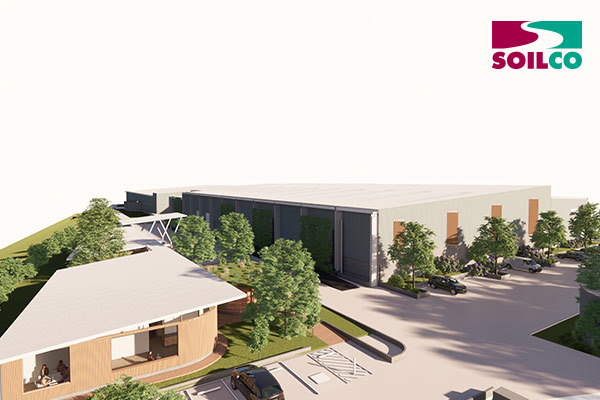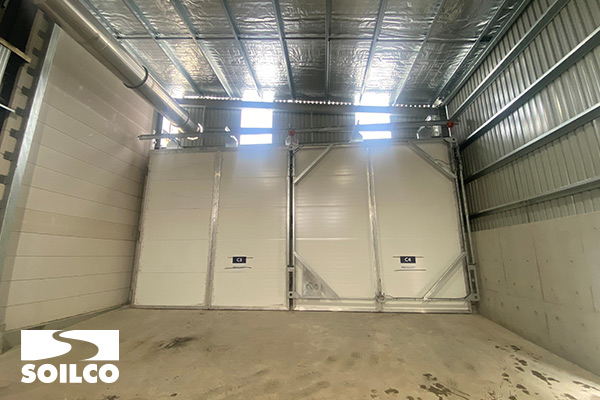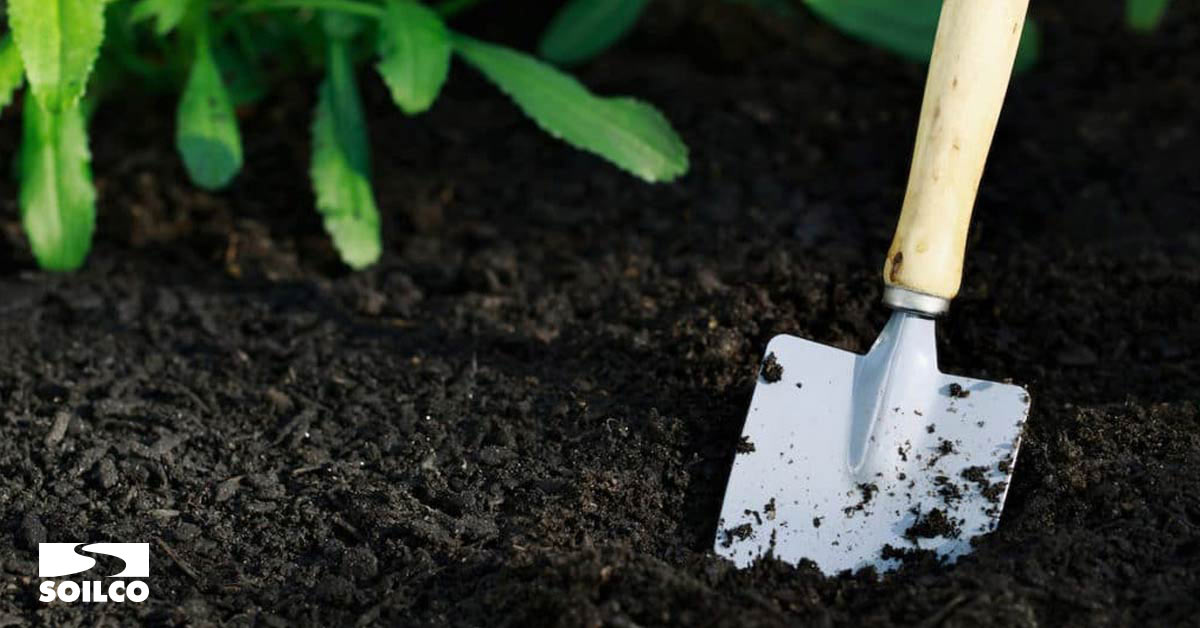The team at SOILCO reflects on a big year of growth for the family-led business, what it’s achieved, and what’s on the horizon.
SOILCO has come a long way since 1974, when the Emery family first purchased a truck and started selling soil from its dairy property in the Shoalhaven region of New South Wales.
Led by a desire to reduce the reliance on natural resources and improve its products, the business has steadily climbed the organics ladder from quarrying soil to the development of state-of-the-art composting facilities that supply quality assured soil health products.
The company now specialises in the design, construction, and operation of advanced organics recycling facilities, but also offers end-to-end solutions from food waste collection through to product manufacture and distribution.
Understanding potential
In December 2021, private equity firm I Squared Capital (ISQ) came on board as a majority shareholder in SOILCO – a move that opened up a world of opportunity for the company, according to Roslyn Florie-George, Executive General Manager – Business Growth and Sustainability.
“ISQ’s knowledge of international sustainability infrastructure, the carbon economy and renewable energy markets, coupled with a full appreciation and understanding of our business were all important factors in the decision for SOILCO,” Roslyn says.
“They see the growth potential for organics recycling in Australia. They’re very supportive of our management team and of our growth strategy – which is why they chose us, and SOILCO chose them. After a year of working together, it is clear we both made the right choice.”
Key to the partnership was ISQ’s alignment with the family values and ambition from which SOILCO was built – and a willingness to help it maintain its identity as an Australian business that is locally led by experts in the field.
Critically, second-generation SOILCO family members Charlie and Mark Emery are still at the forefront of the business, continuing as Managing Director and Sales and Service Manager respectively. Both remain shareholders and have more than 40 years of combined experience at SOILCO.

Technology partners have been selected for SOILCO’s proposed in-vessel Western Sydney Compost Manufacturing Facility at Badgerys Creek.
Growing the network
Over the past year, SOILCO has focused considerable attention on strengthening and broadening its infrastructure network along Australia’s east coast.
“Since ISQ came on board, we’ve secured a greenfield site in Western Sydney,” Roslyn says. “Our infrastructure team, led by Lance Jeffery, Executive General Manager – Infrastructure Delivery, is working hard to progress the EIS for the facility, and we have selected our technology partners to help us make it a reality.
“We’ve also secured two sites in south-east Queensland: a 190-hectare regional site at Bromelton, and a six-hectare site at Pinkenba near Brisbane Airport, in preparation for Queensland’s transition to FOGO.”
These will add to SOILCO’s existing operational New South Wales facilities, including at Nowra and Kembla Grange in the state’s south-east, and at Tweed in the north-east.
The Tweed facility began operating in August 2021, and is the first functional piece of a new South-East Queensland and Northern Rivers network that will include Bromelton and Pinkenba.
“Despite the challenges of extreme weather events and the pandemic, the Tweed facility was delivered on time and has been operating exceptionally well,” Roslyn says. “
It’s a small in-vessel site with a 25,000-tonne capacity license that currently processes FOGO from the Tweed and Ballina communities.”
SOILCO is now preparing to commission additional infrastructure on site to increase the range of end-products produced at the facility. Roslyn says the team has been working with local farmers to understand their requirements and further develop SOILCO’s existing range of compost products.
“The Tweed facility works well as an independent site, but the addition of Bromelton will give us more service options and further flexibility to adapt our products to meet the soil improvement needs of the region,” she says.
“As with our New South Wales network, we see value in having multiple facilities close together in Queensland and the Northern Rivers to complement each other.”
Another key development in 2022 was the construction and commissioning of four in-vessel composting tunnels at Kembla Grange, increasing the site’s processing capacity by 40,000 tonnes-per-annum. This will enable SOILCO to produce FOGO compost on site, saving on both emissions and transport costs.

SOILCO’s new in-vessel tunnels under construction at Kembla Grange.
Good people, good product
As critical as this infrastructure expansion is for SOILCO, it doesn’t mean much without the people to bring it all to life.
Roslyn says ISQ’s investment, combined with the Emery family’s vision and values, has enabled SOILCO to expand its workforce with key people across the company – from laboratory personnel, through to quality control and safety experts, and senior management. “We’ve been able to diversify and strengthen the SOILCO team, and be very targeted in doing so,” she says. “Charlie has worked hard to find the right people for the roles – and we’re almost there, which is very exciting.
“This has set us up well for the next three years as we build our new facilities and expand our network. And ISQ has been very supportive of the process – they’re very much about resourcing appropriately and setting the business up to succeed.”
One such addition to SOILCO’s team is Duncan Le Good, who came on board in October as Executive General Manager – Product Sales and Innovation. Duncan brought with him more than a decade of experience in the organics processing industry, including roles with major resource recovery companies, as well as serving as a Director at the Australian Organics Recycling Association (AORA).
Duncan stresses that while expanding the reach of SOILCO’s operation is of vital importance, the quality of the company’s product will always be the primary focus.
“The word ‘quality’ gets used a lot, but it can mean a whole lot of different things,” Duncan says. “Part of my role is to understand what we produce at our facilities, and where it can go in the market – it’s very much about product that’s fit for purpose.”
“Local feedstocks and technology requirements all differ for each site,” Roslyn adds. “It’s not a one-size-fits-all approach. We like to work very closely with our customers to make sure the design of our operations is right for the area, and that the products are right for those markets.”
Duncan says what’s produced from smaller footprint in-vessel facilities such as Tweed, and what’s produced at larger area composting facilities such as Nowra are very different, and it’s important to know how each can be used, and for what.
“You’ve got to be very mindful about the product you’re manufacturing,” Duncan says. “You have to know exactly what it is, the parameters of it, and then structure everything you do around that quality product. That strategy goes all the way up in the business – from us to the Emery family, to ISQ – and it’s been working really well.
“What makes up our main markets now may not be our main markets in the future, and we want to be prepared for that. ISQ understands our vision, and is prepared to listen and look for other opportunities as the market changes.”
This is indicative of the fundamental trust and understanding at the core of SOILCO and ISQ’s working relationship – one Roslyn says has the growing SOILCO team excited about the future.
“We’ve come a long way over the past year,” she says. “Now, we’re excited by the opportunity to develop critical infrastructure to divert more organics from landfill, regenerate more soil, and help transition to a net-zero economy.”
See this article featured on Waste Management Review.

